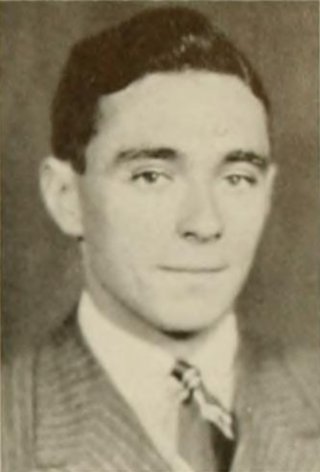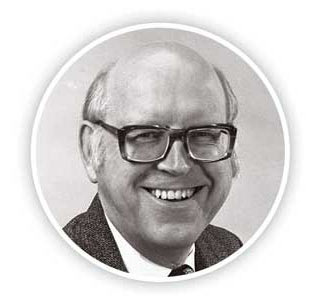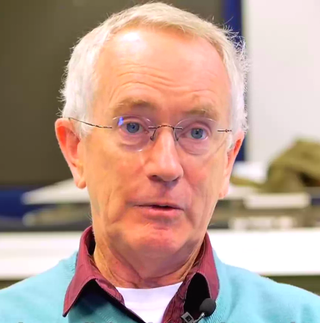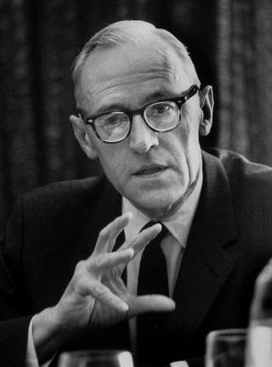Related Research Articles

The Dakota, also known as the Dakota Apartments, is a cooperative apartment building at 1 West 72nd Street on the Upper West Side of Manhattan in New York City, United States. The Dakota was constructed between 1880 and 1884 in the German Renaissance style and was designed by Henry Janeway Hardenbergh for businessman Edward Cabot Clark. The building was one of the first large developments on the Upper West Side and is the oldest remaining luxury apartment building in New York City. The building is a National Historic Landmark and has been designated a city landmark by the New York City Landmarks Preservation Commission. The building is also a contributing property to the Central Park West Historic District.
Evolutionary economics is a school of economic thought that is inspired by evolutionary biology. Although not defined by a strict set of principles and uniting various approaches, it treats economic development as a process rather than an equilibrium and emphasizes change, innovation, complex interdependencies, self-evolving systems, and limited rationality as the drivers of economic evolution. The support for the evolutionary approach to economics in recent decades seems to have initially emerged as a criticism of the mainstream neoclassical economics, but by the beginning of the 21st century it had become part of the economic mainstream itself.
The rendezvous dilemma is a logical dilemma, typically formulated in this way:

Jerome Seymour Bruner was an American psychologist who made significant contributions to human cognitive psychology and cognitive learning theory in educational psychology. Bruner was a senior research fellow at the New York University School of Law. He received a BA in 1937 from Duke University and a PhD from Harvard University in 1941. He taught and did research at Harvard University, the University of Oxford, and New York University. A Review of General Psychology survey, published in 2002, ranked Bruner as the 28th most cited psychologist of the 20th century.

Allen Newell was an American researcher in computer science and cognitive psychology at the RAND Corporation and at Carnegie Mellon University's School of Computer Science, Tepper School of Business, and Department of Psychology. He contributed to the Information Processing Language (1956) and two of the earliest AI programs, the Logic Theorist (1956) and the General Problem Solver (1957). He was awarded the ACM's A.M. Turing Award along with Herbert A. Simon in 1975 for their contributions to artificial intelligence and the psychology of human cognition.

Steve Keen is an Australian economist and author. He considers himself a post-Keynesian, criticising neoclassical economics as inconsistent, unscientific, and empirically unsupported.

Oskar Morgenstern was a German-born economist. In collaboration with mathematician John von Neumann, he founded the mathematical field of game theory as applied to the social sciences and strategic decision-making.

Lloyd Stowell Shapley was an American mathematician and Nobel Memorial Prize-winning economist. He contributed to the fields of mathematical economics and especially game theory. Shapley is generally considered one of the most important contributors to the development of game theory since the work of von Neumann and Morgenstern. With Alvin E. Roth, Shapley won the 2012 Nobel Memorial Prize in Economic Sciences "for the theory of stable allocations and the practice of market design."

Seymour Joseph Cassel was an American actor who appeared in over 200 films and television shows, with a career spanning over 50 years. He first came to prominence in the 1960s in the pioneering independent films of writer/director John Cassavetes. The first of these was Too Late Blues (1961), followed by Faces (1968), for which he was nominated for an Academy Award and won a National Society of Film Critics Award. Cassel went on to appear in Cassavetes' Minnie and Moskowitz (1971), The Killing of a Chinese Bookie (1976), Opening Night (1977), and Love Streams (1984). He also appeared in other notable films, including: Coogan's Bluff (1968), The Last Tycoon (1976), Valentino (1977), Convoy (1978), Johnny Be Good (1988), Mobsters (1991), In the Soup (1992), Honeymoon in Vegas (1992), Indecent Proposal (1993), The Sleepy Time Gal (2001), Beer League (2006), and Fort McCoy (2011). Like Cassavetes, Wes Anderson frequently cast Cassel – first in Rushmore (1998), then in The Royal Tenenbaums (2001), and finally in The Life Aquatic with Steve Zissou (2004).
Macrohistory seeks out large, long-term trends in world history in search of ultimate patterns by a comparison of proximate details. It favors a comparative or world-historical perspective to determine the roots of changes as well as the developmental paths of society or a historical process.

Morton David Alpern, better known as Marty Allen, was an American comedian, actor, and philanthropist. He worked as a comedy headliner in nightclubs, as a dramatic actor in television roles, and was once called "The Darling of Daytime TV". He also appeared in films, notably the 1966 spy comedy The Last of the Secret Agents?. During his comedy career, Allen also toured military hospitals, and performed for veterans and for active military personnel.
A princess and monster game is a pursuit–evasion game played by two players in a region.
Samuel Karlin was an American mathematician at Stanford University in the late 20th century.
Richard Robert Weber is a mathematician working in operational research. He is Emeritus Churchill Professor of Mathematics for Operational Research in the Statistical Laboratory, University of Cambridge.
A search game is a two-person zero-sum game which takes place in a set called the search space. The searcher can choose any continuous trajectory subject to a maximal velocity constraint. It is always assumed that neither the searcher nor the hider has any knowledge about the movement of the other player until their distance apart is less than or equal to the discovery radius and at this very moment capture occurs. The game is zero sum with the payoff being the time spent in searching. As mathematical models, search games can be applied to areas such as hide-and-seek games that children play or representations of some tactical military situations. The area of search games was introduced in the last chapter of Rufus Isaacs' classic book "Differential Games" and has been developed further by Shmuel Gal and Steve Alpern. The princess and monster game deals with a moving target.
In computational complexity theory, the linear search problem is an optimal search problem introduced by Richard E. Bellman and independently considered by Anatole Beck.

Shmuel Gal is a mathematician and professor of statistics at the University of Haifa in Israel.

Information Processing Letters is a peer-reviewed scientific journal in the field of computer science, published by Elsevier. The aim of the journal is to enable fast dissemination of results in the field of information processing in the form of short papers. Submissions are limited to nine double-spaced pages.
Kadašman-Ḫarbe I, inscribed in cuneiform contemporarily as Ka-da-áš-ma-an-Ḫar-be and meaning “he believes in Ḫarbe ,” was the 16th King of the Kassite or 3rd dynasty of Babylon, and the kingdom contemporarily known as Kar-Duniaš, during the late 15th to early 14th century BC. It is now considered possible that he was the contemporary of Tepti Ahar, King of Elam, as preserved in a tablet found at Haft Tepe in Iran. This is dated to the “year when the king expelled Kadašman-KUR.GAL,” thought by some historians to represent him although this identification has been contested. If this name is correctly assigned to him, it would imply previous occupation of, or suzerainty over, Elam.
Menahem Max Schiffer ) was a German-born American mathematician who worked in complex analysis, partial differential equations, and mathematical physics.
References
- ↑ S. Alpern and S. Gal (2003). The Theory of Search Games and Rendezvous, Springer ISBN 0-7923-7468-1.
- ↑ Steve Alpern (1976). Hide and Seek Games. Seminar, Institut fur Hohere Studien, Wien, 26 July